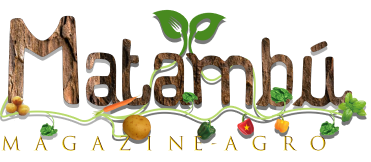(Matambú Magazine-Agro)_ Food security, which has always been a concern for countries all over the world, cannot be discussed outside of the production stages of food production, including their preservation.
Production should also consider conservation, which aims to significantly reduce food loss and waste, in the current economic context, which wants, among other things, to ensure decent food for all. So, how can food production be maximized?
In the chain of agro-industrial
According to Damilola Agbaje, director of African Infrastructure Investment Managers (AIIM), most of the infrastructure that needs to be developed in Africa to enhance the continent’s food security is still cold, temperature-controlled storage. It’s an opportunity for AIIM’s head. As a result, the company known as Commercial Cold Holdings, which provides cold chain services, was established quickly in collaboration with other investors.
It is essential to emphasize that the integrated temperature-controlled food distribution system used in this cold chain aims to preserve the health, flavor, and nutritional quality of highly perishable products from production to consumption, as stated in the report « Sustainable Food Cold Chains: Opportunities, Challenges and the Way Forward » published jointly by the FAO and the United Nations Environment Program (UNEP), on November 12.
Cold chains enable small farmers to reduce the post-harvest losses that are frequently recorded because of a lack of means of preserving their products and help extend the lifespan of quickly perishable foodstuffs.
Globally, AIIM has allocated an amount of $150 million for the operations of its new structure, and plans to acquire other cold storage companies, to network in the sub-region, temperature warehouses controlled, by integrating producers, wholesalers and food retailers, all market leaders.
Mrs. Agbaje intends to establish a pan-African cold chain platform in the long run. A vision that she also started when she bought CCS Logistics, which runs cold stores in Johannesburg and Cape Town, South Africa.
According to the AIIM’s research, which was mentioned by local media, South Africa still lags some other countries despite having a relatively advanced cold chain infrastructure; with only 13 m3 of cold rooms per 1000 people, compared to 105 m3 in Egypt and 83 m3 in Brazil.
Numerous African investors and entrepreneurs have implemented cold chain solutions in recent years. This is for instance the situation of:
- Koolboks, founded in 2018, offers SMEs in Nigeria and beyond cold storage solutions. The company has created an off-grid solar unit that functions similarly to a refrigerator or freezer and can keep the temperature cool for up to four days without sunlight or electricity. Additionally, the units include two LED light bulbs and USB ports for charging mobile devices.
Koolboks has included pay-as-you-go technology, lowering the price of the units. Aruwa Capital Management led the company’s recent $2.5 million seed funding round, bringing its total investment to $3.5 million.
- ColdHubs is the other Nigerian company that operates solar-powered cold rooms and provides smallholder farmers and market traders with a pay-as-you-go service for fresh produce. Three tons of food can fit in each cooling unit of 3m2.
To store fresh produce in a 20 kg returnable plastic crate for a day, a customer pays 200 Nigerian naira, which is equivalent to approximately US$0.5. The company, which was established in 2015, now employs 68 people across 54 hubs located in 22 states.
- Cold Solutions Kenya, in 2020, a portfolio company of the private equity firm ARCH Cold Chain Solutions East Africa Fund announced that it would invest KSh7.5 billion (62 million dollars) in the construction of cutting-edge temperature-controlled warehouses in Nairobi and Mombasa. The primary facility of the business is in the Tatu City Special Economic Zone in Nairobi. It was constructed to accommodate a variety of temperature ranges, ranging from +26°C to -40°C, for a variety of product lines, including fresh fruits and vegetables, pharmaceuticals, vaccines, meats, poultry, and frozen foods.
- InspiraFarms creates and offers cold storage solutions to African fresh produce businesses. From groups of small farmers to large agricultural enterprises, he serves a diverse clientele.
InspiraFarms has created a modular and prefabricated cold storage technology. The units are easily removed and moved due to their portability. In addition, they are relatively simple to set up in rural areas. The company offers a variety of financing options to its customers to make this more affordable.









